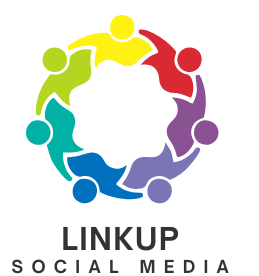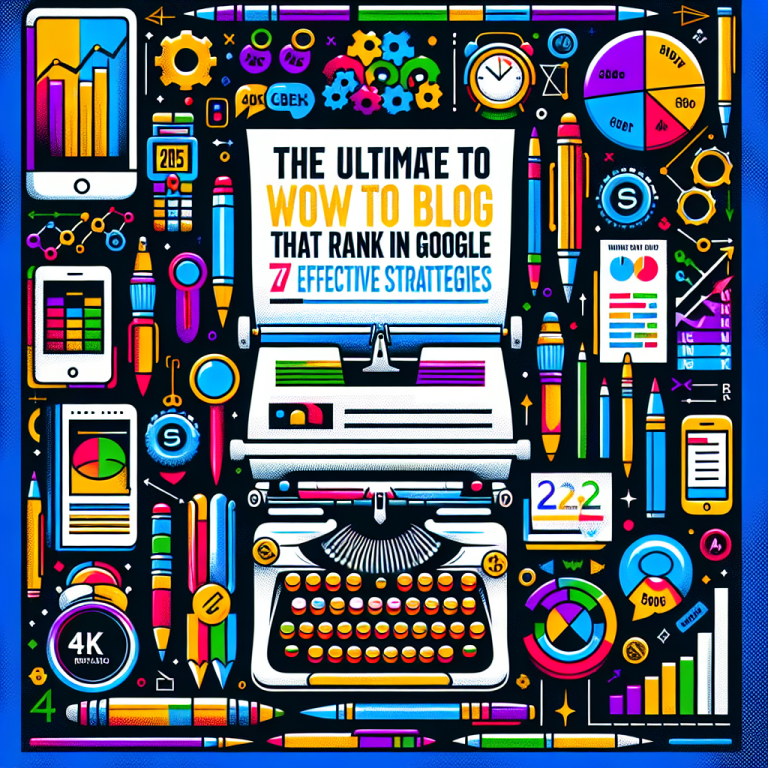How to Start Blogging with No Experience: 7 Effective Tips for 2025
1. Define Your Niche and Goals
Identifying Your Passion and Expertise
Starting a blog without prior experience can seem daunting, but the first step is to define your niche. Think about what topics excite you or where you have unique insights. For example, if you love cooking, your niche could be healthy recipes for busy professionals. Choosing a niche youâre passionate about ensures you’ll stay motivated as you learn and grow your blog in 2025.
Research the market to see what others are doing. Use tools like Google Trends and keyword planners to identify popular topics with less competition. This strategic approach makes it easier for beginners to stand out even when just starting out. Remember, your passion combined with market demand can greatly increase your chances of success.
Set clear, achievable goalsâwhether it’s sharing your story, earning revenue, or building a community. Defining these goals early helps you create targeted content and measure your progress over time. Even with no experience, having a purpose will guide your journey into the world of blogging.
Example: Setting Realistic Expectations
Many beginners expect instant results, but consistent effort over months is key. For 2025, data shows that most successful bloggers take around 6 to 12 months to establish steady traffic. Setting realistic goals helps you stay committed and focused. Think about milestones such as publishing your first 10 posts, gaining your first 100 visitors, or building your email list.
Remember, starting with a clear niche and well-defined goals reduces overwhelm and gives your blogging journey structure. As you progress, you can refine your focus based on feedback and analytics, ensuring continuous growth.
2. Choose the Right Blogging Platform
Evaluating Popular Platforms for Beginners
When learning how to start blogging with no experience, selecting the right platform is crucial. Popular options like WordPress, Blogger, and Wix each have their pros and cons. WordPress.org offers extensive customization, but it requires some technical skills. On the other hand, platforms like Wix or Squarespace are more user-friendly with drag-and-drop features, perfect for beginners in 2025.
Research shows that nearly 40% of all blogs are built on WordPress because of its flexibility, but for newcomers, ease of use can outweigh advanced features. If youâre just starting out, consider Wix or Weeblyâthey require less setup time and provide built-in templates, so you can focus on creating content instead of troubleshooting.
Think about your future goals too. If you plan to monetize or grow your blog extensively, starting with a platform thatâs scalable like WordPress might be better. For small projects or hobby blogs, simpler builders are often enough. Experimenting with free versions helps you understand which platform suits your style and needs in 2025.
Choosing a Custom Domain and Hosting
Getting a custom domain (like www.yourblog.com) makes your blog look professional and trustworthy. Many beginners make the mistake of sticking with free subdomains, but investing in a domain (usually around $10-15/year) can significantly boost credibility. Pair it with reliable hosting, such as Bluehost or SiteGround, to ensure your blog stays accessible for visitors worldwide.
Many hosting providers now offer one-click WordPress installations, making it easier than ever for beginners to set up their blogs in 2025. Remember to choose a domain name that reflects your niche and is easy to remember. Simplicity is keyâif people can easily recall your URL, theyâre more likely to revisit and share your blog.
Incorporating this simple step early on can save headaches later and help you establish an online presence faster. So, choose your platform wisely, focus on a professional domain, and set yourself up for success from day one.
3. Create High-Quality, Valuable Content
Understanding Your Audienceâs Needs
Content is king in the blogging world, especially when you’re learning how to start blogging with no experience. Your primary focus should be to provide real value to your readers. Conduct surveys or read comments to understand what your target audience seeks. For example, if you blog about personal finance, deliver actionable tips like budgeting templates or saving strategies.
High-quality content engages your audience, encourages sharing, and boosts your SEO rankings. Use storytelling techniques, visuals, and clear insights to make your posts more appealing. Remember, in 2025, original content that offers unique perspectives is favored by search engines and readers alike.
Consistency is also crucial. Aim to publish at least one well-crafted post per week to build trust and credibility. Over time, this regularity will help you grow your blog organically and attract loyal followers.
Writing for SEO and Readability
SEO remains vital even for beginners. Use your keyword phrase “how to start blogging with no experience” naturally within your content, especially in the first 100 words and throughout the article. Incorporate related keywords, such as “blogging tips 2025,” or “beginner blogging strategies.”
Break your content into easy-to-read sections with subheadings, bullet points, and numbered lists. This enhances readability and boosts your chances of appearing in featured snippets. Use tools like Yoast SEO or All in One SEO Pack to optimize your posts for search engines.
Remember, the goal is to make your content accessible and engaging, helping newcomers learn how to start blogging with no experience and succeed in their journey.
4. Master Basic SEO Skills
Understanding Keywords and Optimization
Learning how to start blogging with no experience also involves understanding SEO basics. Keywords are the phrases your target audience searches for, so incorporating them thoughtfully can improve your visibility. Use tools like Google Keyword Planner or Ubersuggest to identify relevant keywords related to your niche.
Once you find your keywords, integrate them naturally into your titles, headings, and throughout your articles. Avoid keyword stuffing, which can harm your rankings. Instead, aim for a natural flow that benefits both readers and search engines.
By focusing on SEO fundamentals, even beginners can achieve better traffic and discoverability in 2025. Remember, ranking high on Google can significantly grow your blogâs readership over time.
Building Backlinks and Improving Site Speed
Backlinksâlinks from other reputable websitesâare an essential part of SEO. Reach out to friends, colleagues, or niche websites to collaborate or guest post. Building backlinks increases your domain authority, boosting your chances of ranking higher.
Site speed is another critical factor. Use tools like Google PageSpeed Insights to analyze and enhance your blogâs loading times. A fast, responsive website keeps visitors engaged and reduces bounce rates. Small improvements, like compressing images and using a reliable hosting service, can make a big difference in 2025.
Mastering these basic SEO skills will give your blog a strong foundation, making it easier to grow your audience and reach more readers as you learn how to start blogging with no experience.
5. Promote Your Blog Effectively
Leveraging Social Media Platforms
Promotion is key when youâre starting out without experience. In 2025, social media remains a powerful tool to reach a wider audience. Create profiles on platforms like Instagram, Twitter, Facebook, and TikTok, focusing on those most relevant to your niche.
Share your blog posts regularly, engage with your followers, and participate in niche-specific groups or communities. Use attention-grabbing visuals and headlines to entice users to visit your blog. Social media metrics show that consistent sharing can significantly increase your traffic, especially for new bloggers.
Donât forget to incorporate social sharing buttons on your blog to make it easy for readers to share your content. This organic promotion can help grow your audience without the need for paid advertising initially.
Guest Posting and Collaborations
Reaching out to established bloggers for guest posts is a proven method to gain exposure. Offer to write high-quality articles for respected sites within your niche in exchange for backlinks and mentions.
Collaborations with influencers or other bloggers can also open new avenues for traffic and growth. Participate in online webinars, podcasts, or joint projects to boost your authority and visibility.
In 2025, building a network within your niche is more accessible than ever, even for those with no prior experience. Focus on creating valuable relationships to accelerate your blogging success.
6. Stay Consistent and Patient
The Power of Persistence
Learning how to start blogging with no experience requires patience. Success rarely happens overnight, but consistent effort builds momentum. Aim to publish regularlyâwhether thatâs weekly or bi-weeklyâand stick to your schedule.
Many top bloggers in 2025 report that their traffic doubled after 6 months of consistent posting. Developing a content calendar can help you stay organized and committed. Remember, quality beats quantity, so focus on creating valuable posts even if you start slow.
Patience is essential because search engine algorithms favor websites that show ongoing activity. Staying persistent will eventually pay off as your content gains traction and your audience grows.
Overcoming Common Challenges
Expect frustration or slow growth initiallyâthis is normal. Use setbacks as learning opportunities. Join online communities or forums for support and advice. Celebrate small wins, such as your first comment or social share, to keep motivated.
Monitoring your progress with tools like Google Analytics helps you understand whatâs working and what needs improvement. Adjust your strategies accordingly, and donât give up. Your consistent efforts will build a solid foundation for long-term blogging success in 2025.
7. Leverage Analytics and Feedback
Using Data to Improve Your Content
Understanding how to start blogging with no experience also involves analyzing your blogâs performance. Tools like Google Analytics provide insights into visitor behavior, popular content, and traffic sources. Use this data to tailor your future posts and marketing efforts.
If you notice certain topics generate more engagement, focus on creating more content in that area. Conversely, if some posts underperform, analyze why and adapt your approach. Data-driven decisions accelerate growth, especially for beginners in 2025.
Set regular review intervalsâmonthly or quarterlyâto assess your progress, and keep refining your content and promotion strategies accordingly. This iterative process ensures continuous improvement and success.
Gathering and Implementing Feedback
Encourage your readers to share feedback through comments or surveys. Honest input helps you understand their needs and preferences. Responding to feedback shows your commitment and builds a loyal community.
Implementing suggested changes or new ideas based on feedback can significantly boost engagement and satisfaction. For beginners, this active listening lays the groundwork for a responsive and thriving blog.
In 2025, combining analytics with direct feedback creates a powerful strategy to grow your blog organically and effectively, even with no prior experience.
Frequently Asked Questions
Q1: How long does it take to see results after learning how to start blogging with no experience?
Typically, beginners start noticing traffic and engagement within 3-6 months, but consistent effort over a year often leads to more substantial growth.
Q2: Can I start a successful blog without technical skills?
Absolutely! Platforms like Wix, Squarespace, and easy WordPress setups require minimal technical knowledge, making them ideal for beginners.
Q3: What are the best ways to learn how to start blogging with no experience in 2025?
Utilize online tutorials, courses, and authoritative blogs. Practice regularly, join online communities, and analyze successful blogs in your niche to learn best practices.
Q4: Is it worth investing money in a domain and hosting when starting out?
Yes, investing in a custom domain and reliable hosting boosts your blog’s professionalism and credibility, which helps attract and retain visitors.
Q5: What are some common mistakes beginners make when learning how to start blogging with no experience?
Common mistakes include focusing too much on design rather than content, neglecting SEO, inconsistent posting, and not promoting their blog enough.
Conclusion
Learning how to start blogging with no experience in 2025 is entirely achievable with patience, the right strategies, and consistent effort. By defining your niche, choosing the suitable platform, creating valuable content, mastering basic SEO, promoting effectively, staying persistent, and leveraging analytics, you set yourself up for success. Remember, every experienced blogger started with zero knowledgeâyour journey begins today. Stay committed, keep learning, and enjoy the rewarding process of building your own online space.










